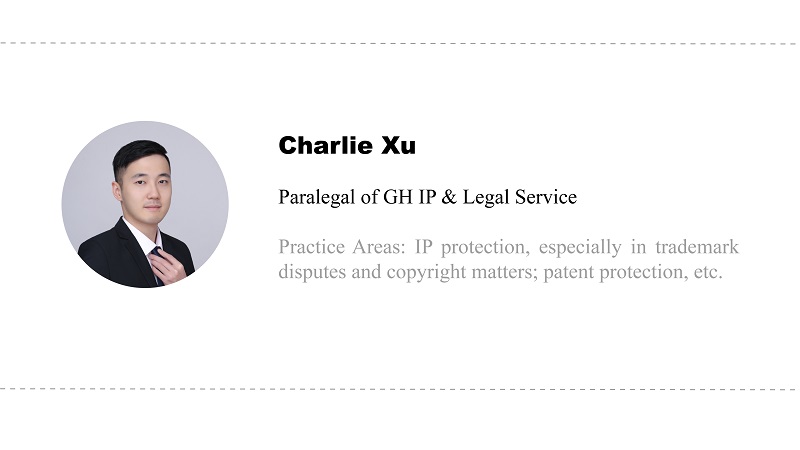In recent years, with the openness and fierceness of Chinese market competition, a variety of market competition behaviors have resulted. Although Chapter 2 of the Anti-Unfair Competition Law enumerates some types of unfair competition behaviors that are common and clearly foreseeable in the market when the law is enacted, due to the lagging nature of the law, some new behaviors of unfair competition cannot fall into the current Laws and regulations, hence more and more cases of prosecuting unfair competition are based on principle clauses as the legal basis, which are mainly principles of fairness, free will, equality, good faith, following accepted business ethics, etc. This article uses a profound case to summarize the applicable conditions of Article 2 of the Anti-Unfair Competition Law in Chinese jurisdiction.

First of all, Article 2 (1) of Anti-Unfair Competition Law establishes the basic principles of market transactions, which claims that “businesses shall, in their production and distribution activities, adhere to the free will, equality, fairness, and good faith principles, and abide by laws and business ethics”. Second, the definition of unfair competition behavior is provided in the Article 2 (2), which states, “for the purposes of this Law, ‘act of unfair competition’ means that in its production or distribution activities, a business disrupts the order of market competition and causes damage to the lawful rights and interests of the other businesses or consumers, in violation of this Law”. At the same time, Chapter II of the Anti-Unfair Competition Law stipulates many unfair competition behaviors through enumeration, such as counterfeiting and confusing behaviors, misleading propaganda behaviors, etc.
The Kelp Quota Case is the first lawsuit case based on principal clauses of Anti-Unfair Competition Law in China. The final judgement was announced in 2010. From the first trial to the second trial to the Supreme Court's retrial, this case has attracted much attention from the outside. The applicable conditions of Article 2 of Anti-Unfair Competition Law determined by the Supreme Court in this case have been widely cited in subsequent similar cases. We hereby review this case briefly.
Kelp Quota Case Briefing:
1. In 1986, Ma Daqing (Mr. Ma) joined Shandong Food Company and began to work in kelp processing and export in 1988. From 2001 to 2006, COFCO Group allocated Shandong province the amount of kelp exported to Japan every year. During this period, Mr. Ma signed contracts with Japanese companies on behalf of Shandong Food Co. On December 1, 2006, Mr. Ma resigned.
2. In September 2006, Shengke Dacheng Company (“SD Company”) was established. The company's representatives, directors, and supervisors were relatives of Mr. Ma, and Mr. Ma was the actual controller of the company.
3. After Mr. Ma left, he attracted other employees of the original company. The Hokkaido Fish Federation of Japan highly recognized the work results of Mr. Ma, and hoped to continue to cooperate with Mr. Ma, so it requested COFCO to give the quota of kelp exporting in Weihai city to SD Company in 2007, at the same time, the quota of Shandong Food Company was relatively reduced.
4. Shandong Food Company sued to the court, demanding that SD company and Mr. Ma ceased unfair competition and compensate for the losses. In this case, Shandong Food Company was supported in the first trial. The original judgment was rescinded in the second trial, and Shandong Food Company's lawsuit was rejected. The Supreme Court's retrial ultimately supported the outcome of the second trial and rejected the retrial request of Shandong Foods.
In this case, the behaviors of SD company and Mr. Ma did not fall into the enumerated clauses in the Anti-Unfair Competition Law (1993 edition) at that time, therefore, the plaintiff filed a lawsuit under Article 2 of the Anti-Unfair Competition Law. In the Supreme Court's retrial, the issue of the application of law, that was, whether Article 2 of the Anti-Unfair Competition Law could be applied in this case, was one of a major review issues. The Supreme Court held that any competitive act in which the law has provided exhaustive protection through special provisions shall not be regulated by applying the general provisions of the Anti-Unfair Competition Law, that is, the accused acts of unfair competition shall not belong to Chapter II of the Anti-Unfair Competition Law; Besides, the plaintiff asserted its rights in accordance with the principle provisions of Article 2 of the Law, and the courts of the first and second instance also judged the case accordingly, hence there is nothing wrong applying Article 2 of the Anti-Unfair Competition Law in this case.
At the same time, the Supreme Court also believed that although the courts may apply the general provisions of the Anti-Unfair Competition Law to maintain fair competition in the market, they shall control the applicable conditions strictly to avoid inappropriate interference and hinder free market competition. All acts that have been provided with exhaustive protection by special provisions of the law shall not be controlled by the general provisions of Anti-Unfair Competition Law.
Therefore, the application of Articles 2 (1) and (2) of the Anti-Unfair Competition Law shall fulfill the following conditions:
The law makes no special provision for this type of competition behavior.
The legitimate rights and interests of other operators were actually damaged due to this competition behavior.
This competition behavior does violate the principle of good faith and accepted business ethics
Through the analysis of the above three conditions, when judging whether the principle clause of Article 2 of Anti-Unfair Competition Law could be applied as the legal basis for litigation, the most important part is to prove that this competition behavior violates of the principle of good faith and accepted business ethics. However, there is no a uniform set of standards for accepted business ethics, which need to enter specific areas for analysis.
After Kelp Quota Case, a large number of lawsuits have been filed in China, under Article 2 of Anti-Unfair Competition Law directly. However, most cases failed since the plaintiffs could not prove that the other party violated accepted business ethics. This is enough to indicate that the applicable standard of Article 2 of Anti-Unfair Competition Law is still very strict.



